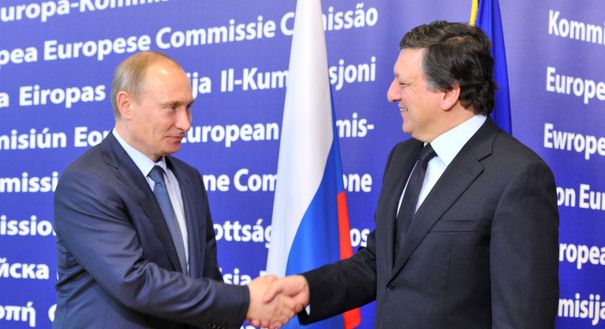Throughout the 1990s and 2000s most Russians looked at the European Union with a lot of admiration. Even as the Soviet Union disintegrated, Germany, and then Europe outside the former USSR became united. Europe was the model for Russia in many things—economic, social, societal, political. Even though this model was not always followed, it was recognized as superior to Russia’s and perhaps supreme in the world.
This view has not vanished completely, but it has been saddled with important qualifications. In economic terms, the European model has come to be seen as too socialist, too bureaucratic, and too unfriendly to competitiveness and growth. In social terms, multiculturalism has been recognized as a failure even by its own proponents. In political terms, the rise of both right-wing nationalism and left-wing populism is eating away at the political center which has long provided the stability necessary for the implementation of the European project.
Europe’s present problems have many sources, but, as Russian commentators maintain, Europe’s difficulties in dealing with them points to the problem of leadership. In the past, the EU faced a number of crises, only to emerge stronger as a result of successfully overcoming them. This time, the European project itself appears to be at stake, and there is no certainty about the outcome. As to Europe’s nominal leaders, many of them look more like followers, eager to go with the prevailing popular mood—even to the brink of a disaster, as in Greece.
For the Kremlin, Europe’s current woes bespeak a crisis of democracy which “has gone too far”, and vindicate a more authoritarian form of government. Ironically, this very form of government is increasingly challenged in Russia itself on a range of counts: corruption, energy dependency, slow development, massive hemorrhage of talent and the like. Russia itself is witnessing a rise in both left-wing and right-wing populism, with a very weak political center to keep the country on an even keel. Rather than aiding Europe to deal with its problems, Russia is likely to add to them.
In both Europe and Russia, things will probably need to get worse before they start getting better. Within the next several years, both will be put up hard against the wall. Then, if the EU does not unravel, it will need to become much more integrated economically as well as politically. If Russia does not slide into chaos, it will have to start building institutions. When Mr. Putin said in his inauguration speech that the next six years will be crucial for the country, he was absolutely right, whatever he had in mind when he was saying this.






